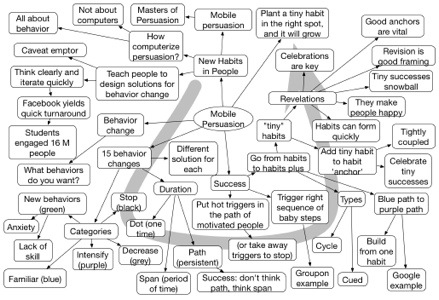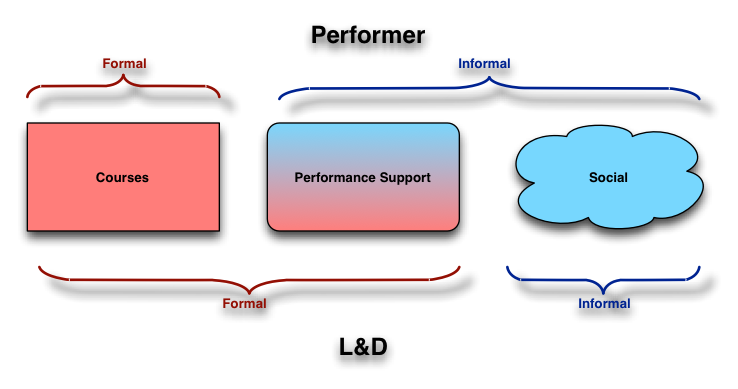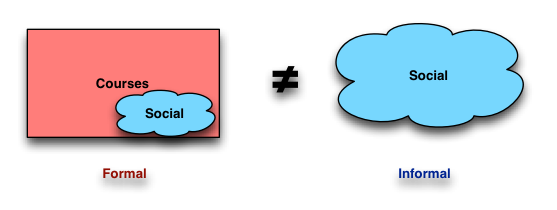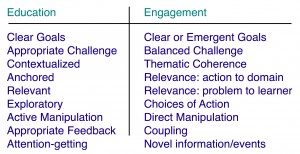Today I was part of a session at the eLearning Guild’s mLearnCon mlearning conference on Making Mobile Work. For my session I put my tongue slightly in cheek and suggested that there were 5 phrases you need to master to Make mLearning Work. Here they are, for your contemplation.
The first one is focused on addressing either or both of yourself or any other folks who aren’t yet behind the movement to mobile:
How does your mobile device make you smarter?
The point being that there are lots of ways we’re all already using mobile to help us perform. We look up product info while shopping, use calculators to split up the bill, we call folks for information in problem-solving like what to bring home from the grocery store, and we take photos of things we need to remember like hotel room numbers or parking spots. If you aren’t pushing this envelope, you should be. And if folks aren’t recognizing the connection between how they help themselves and what the organization could be doing for employees or customers, you should be helping them.
The second one focuses on looking beyond the initial inference from the phrase “mlearning”:
Anything but a course!
Here we’re trying to help our stakeholders (and designers) think beyond the course and think about performance support, informal learning, collaboration, and more. While it might be about augmenting a course, it’s more likely to be access to information and people, as well as computational support. Mobile learning is really mobile performance support and mobile social.
The third key phrase emphasizes taking a strategic approach:
Where’s the business need?
Here we’re emphasizing the ‘where’ and the ‘business’. What’s important is thinking about meeting real business needs, with metrics and everything. What do the folks who are performing away from their desks need? What small thing could you be doing that would make that activity have a much more positive impact on the bottom line?
The fourth phrase is specifically focused on design:
What’s the least I can do for you?
It’s not about doing everything you can, but instead focusing on the minimal impact to get folks back into the workflow. Mobile is about the 20% of the features that will meet 80% of the need. It’s about the least assistance principle. It’s about elegance and relevance.
From there, we finish by focusing on our providers:
Do you have a mobile solution?
Look, mobile is more than just a tactic, it’s a platform, and you need to recognize it as such. Frankly, if a vendor of an enterprise solution (except, perhaps, for computationally intensive work like 3D rendering and so on) doesn’t have a mobile solution, I reckon it’s a deal-breaker. This is where mobile is really the catalyst for change: it’s bringing a full suite of technology support whenever and wherever needed, so we need to start thinking about what a full suite of support is. What is a full performance ecosystem?
So there you have it, the gist of the presentation. If you master the concepts behind these phrases and employ them judiciously, I do believe you’ll have a better chance of making mlearning work.




